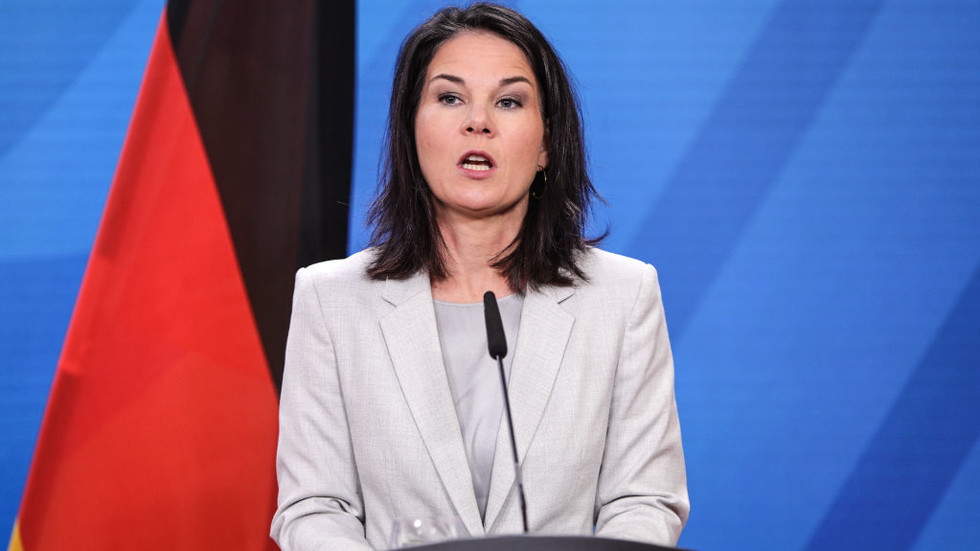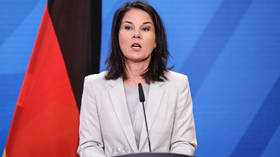
The 13th package of restrictions will target the supply of drones, according to Annalena Baerbock

German Foreign Minister Annalena Baerbock © Getty Images / Omer Messinger / Stringer
The EU is set to adopt another round of sanctions on Russia which will affect the supply of unmanned aerial vehicles (UAVs) to the country, among other things, according to German Foreign Minister Annalena Baerbock.
The package is almost finalized, Baerbock said on Monday, ahead of a meeting with her counterparts in Brussels. EU foreign ministers are set to discuss the bloc’s 13th round of sanctions before February 24, the second anniversary of the launch of Russia’s military operation against Ukraine.
Hungary is the only EU state yet to approve the proposed restrictions, which would reportedly target 200 individuals and entities, mostly from Russia. According to media reports, citing European diplomats, the EU is planning for the first time to sanction companies in mainland China and in other countries including Türkiye, India, and Serbia, for helping Moscow circumvent sanctions by allegedly supplying it with components that can be repurposed for use in drones and other weapon systems.
China has reacted to reports that its firms could be blacklisted, saying it rejects “illegal sanctions,” while vowing to protect the interests of Chinese companies.
Budapest refused to sign off on the new sanctions package during the bloc’s ambassadors meeting last week, as it opposes restrictions on the Chinese firms included, media outlets report.
READ MORE: Hungary blocks EU’s new round of Russia sanctions – FT
Hungary has taken a neutral stance since the February 2022 escalation. Budapest condemned Moscow’s military operation but refrained from supplying weapons to Ukraine, while also calling for a diplomatic solution to the crisis. It has also repeatedly said the sanctions hurt the EU itself more than Russia.
According to President Vladimir Putin, the Russian economy continues to grow and has already become the largest in Europe and the fifth largest in the world in terms of purchasing power parity, despite the Western sanctions. It grew above the global average in 2023, with GDP increasing by 3.6%. The economy has demonstrated stability, unlike those of the US and EU, which are currently in decline, Putin has said.




